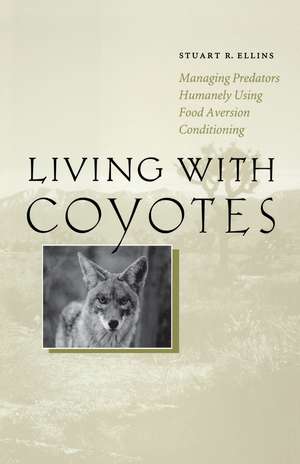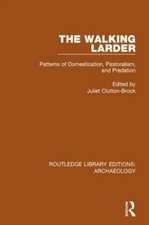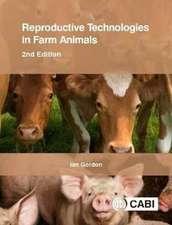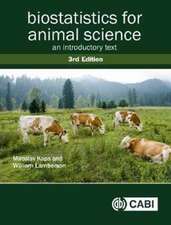Living with Coyotes: Managing Predators Humanely Using Food Aversion Conditioning
Autor Stuart R. Ellinsen Limba Engleză Paperback – iun 2005
In this thoughtful, well-argued, and timely book, Stuart Ellins makes the case that lethal methods of coyote management do not work and that people need to adopt a more humane way of coexisting with coyotes. Interweaving scientific data about coyote behavior and natural history with decades of field experience, he shows how endlessly adaptive coyotes are and how attempts to kill them off have only strengthened the species through natural selection. He then explains the process of taste aversion conditioning—which he has successfully employed—to stop coyotes from killing domestic livestock and pets. Writing frankly as an advocate of this effective and humane method of controlling coyotes, he asks, "Why are we mired in the use of archaic, inefficient, unsophisticated, and barbaric methods of wildlife management in this age of reason and high technology? This question must be addressed while there is still a wildlife to manage."
Preț: 163.09 lei
Nou
Puncte Express: 245
Preț estimativ în valută:
31.22€ • 32.50$ • 25.70£
31.22€ • 32.50$ • 25.70£
Carte tipărită la comandă
Livrare economică 31 ianuarie-14 februarie 25
Preluare comenzi: 021 569.72.76
Specificații
ISBN-13: 9780292719569
ISBN-10: 0292719566
Pagini: 175
Ilustrații: 22 b&w photographs, 3 figures
Dimensiuni: 140 x 216 x 15 mm
Greutate: 0.45 kg
Editura: University of Texas Press
Colecția University of Texas Press
ISBN-10: 0292719566
Pagini: 175
Ilustrații: 22 b&w photographs, 3 figures
Dimensiuni: 140 x 216 x 15 mm
Greutate: 0.45 kg
Editura: University of Texas Press
Colecția University of Texas Press
Notă biografică
Stuart R. Ellins is Professor Emeritus of Psychology at California State University, San Bernardino.
Cuprins
- Preface
- Chapter 1. Coyotes in My Pen
- Chapter 2. Surviving the Onslaught
- Chapter 3. A Balance of Power
- Chapter 4. Surplus Killing
- Chapter 5. An Opportunistic Scavenger: Coyote Feeding Habits
- Chapter 6. Feeding the Pack: The Development of Dietary Preferences and Aversions
- Chapter 7. To Eat or Not to Eat? Modification of Dietary Habits
- Chapter 8. Conditioned Prey Aversions: Will They Work in the Real World?
- Chapter 9. Predator Management: Sociology, Science, or Politics
- Chapter 10. Current Status: The Application of Prey Aversion Conditioning
- References
Descriere
A thoughtful, well-argued plea for using humane methods to manage North America’s most adaptable animal predator.










